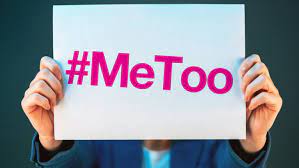As women, it does not surprise us when we learn that each one of us has undergone some form of sexual harassment, assault or violence at some point in our lives. Honestly, sharing these stories with friends, acquaintances and family members can be both comforting as well as horrifying. At one go, it does help to know that most of us are sailing in the same boat and that we are not alone when it comes to facing these issues. But on the other hand, thinking about how widespread these experiences are can leave us feeling discouraged.
In October 2017, there were stories in the New York Times and New Yorker wherein multiple women disclosed incidences from their personal lives related to sexual abuse, all sorts of sexual harassment and even assault. These stories revolved around the famous American producer, Harvey Weinstein and some of his associates. These articles paved a way to a growing wave of allegations on him, as more and more victimised women stepped forward to unfold their experiences, not only concerning with Weinstein but the whos who from the Hollywood.
Since nothing connects the world faster than the internet, in a matter of days, the hashtag, #MeToo started trending across various social media networks. Both women and men from all walks of life boldly spoke about their own experiences of sexual harassment and assault for the first time. Initially, this flood of stories began with a tweet when actor Alyssa Milano asked her Twitter followers to respond with ‘me too’ if they ever faced sexual harassment or some form of gender-related assault in their lives. Very soon, social media was flooded with stories – long and short, each one with a hashtag #MeToo.
What many of us don’t know is that the Me Too movement has been supporting people since more than a decade, (long before the tweet). Initially begun by Tarana Burke in 2006, this worldwide movement aims to help survivors of sexual violence, particularly young women to find pathways to healing. Even though the actor, Milano was partly credited to make the Me Too movement go viral, those familiar with the origin of the movement quickly credited Burke and introduced her to a broader audience who were ignorant of her work and activism.
In Burke’s words in a recent interview, ‘It wasn’t built to be a viral campaign or a hashtag that is here today and forgotten tomorrow. It was a catchphrase to be used from survivor to survivor, to let folks know that they weren’t alone and that a movement of radical healing was possible and happening.
With respect to the Me Too movement, such conversations that were previously talked as hush-hush have now started taking place more frequently, more openly and more boldly. The Me Too movement has compelled many people to reflect on their own experiences, at times even making them feel sorry and seeing things in the new light. Several people have also chosen to break the silence and share their personal stories.
Just because someone hasn’t said ‘me too’ doesn’t mean they haven’t experienced harassment or assault. Every woman has experienced harassment or assault, or has felt unsafe in her body in some way. EVERY SINGLE ONE.

